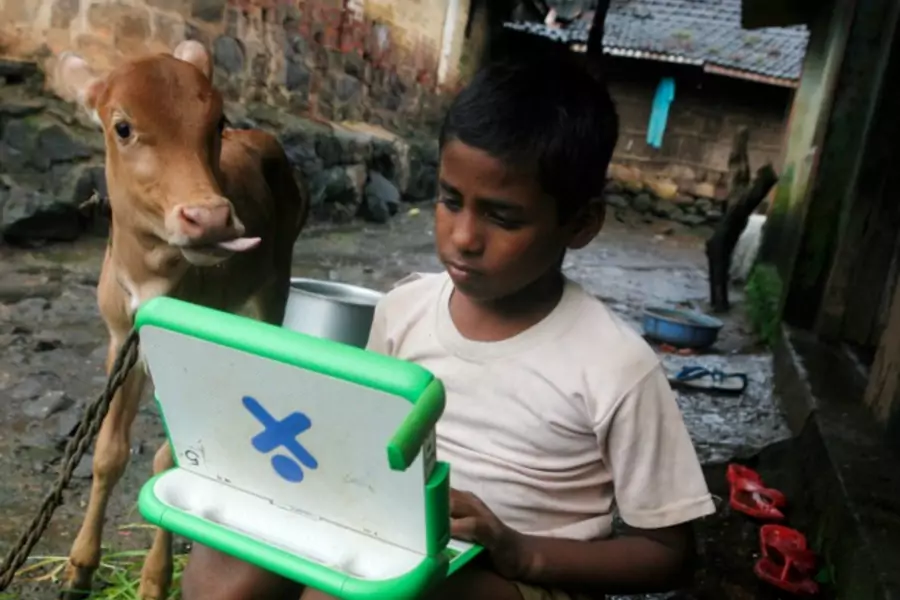WSIS Beyond 2015: A Peek at the Preparations for the UN High Level Meeting

More on:
Samantha Dickinson is an Internet governance consultant and writer. You can follow her on Twitter at @sgdickinson and via her blog, Lingua Synaptica.
The eagerly anticipated draft outcome document for the UN General Assembly’s December High Level Meeting on the review of the World Summit on the Information Society (WSIS) appeared fashionably late last week. At the two major summits in 2003 and 2005, which together were known as “WSIS”, UN Member States agreed to a number of activities aimed at bringing the benefits of information and communications technologies (ICTs) to everyone in the world, and in particular to those in the developing world.
This latest document, called the “zero draft”, will form the basis of negotiations in New York next week when Member States continue to debate the next steps in achieving the WSIS goals. The draft arrived a little too fashionably late as states, with the input of other stakeholders (the private sector, civil society, the technical community and academia), race to find common ground before December’s meeting.
There are significant divergences of opinion on WSIS issues—security, Internet governance, human rights, and policies that improve Internet access are just a few—and they have largely existed in the same form since the original WSIS discussions of a decade ago. Moreover, Member States have only in the last few weeks diverted their attention to the WSIS process given that much of their time was consumed with the much larger Sustainable Development Goals (SDG) process. Many Member States didn’t feel able to form full positions on WSIS until they knew what the SDGs would finally be.
The convergence of all these factors means that the development of an outcome document for the December High Level Meeting has been, and will continue to be, challenging.
The two co-facilitators of the preparatory process have tried their hardest in the zero draft to set forth language that States may perhaps be able to accept. However, there is very little likelihood of reaching any agreement on significant changes to the current WSIS priorities or agreement on any new ones. This, of course, won’t stop participants in the preparatory process from making their case. Developing countries will push for a larger role for multilateral institutions to manage the Internet and many in the West will push back. Russia will advocate for a recognition of the concept of “national Internet segments” and civil society groups will parry, arguing that it risks fragmenting the Internet and undermining access to ICTs.
As December gets closer, negotiators are likely to focus on the following sticking points:
- Enhanced cooperation in Internet governance. In 2005, Member States agreed that “enhanced cooperation” was necessary “to enable governments … to carry out their roles and responsibilities in international public policy issues pertaining to the Internet.” It’s a vaguely worded compromise, the meaning of which is still debated today. Does enhanced cooperation mean a government-only platform to address Internet policy issues? Would the platform be open to non-government representatives to participate in or to observe? Or does it mean better cooperation between all stakeholders engaged in Internet governance processes?
- Whether to hold another summit or high level event aimed at developing specific and concrete outcomes. Many participants wanted more specific and significant outcomes and updates to the direction of WSIS for the December meeting, but it’s clear that’s not going to be possible. Hence, there is debate about holding another summit, possibly in 2020, which would be a far more costly exercise than this current process for everyone involved. But for many, the costs would be justifiable if the next summit can achieve the significant changes that are not likely to be agreed in December.
- Cybersecurity and human rights. These are separate issues in the zero draft, but are closely related to each other, particularly in the wake of Edward Snowden’s disclosures, where a number of States are invoking human rights to argue against other governments accessing information about their citizens’ communications.
- Funding mechanisms for achieving the WSIS goals. As always, it comes down to debates about who should pay for it all.
In the end, the final outcome document is more likely to note the existence of diverse views instead of reconciling them. As the process moves forward, the views and actions that don’t have strong support will begin to disappear from the draft, leaving only what states can agree on. That middle ground is likely to be based on the existing WSIS framework agreed between 2003 and 2005, with some additional amendments based on other related texts agreed since that time. Unless there’s a major change to the way Member States are approaching this review of WSIS, don’t expect agreement on concrete solutions to any of the topics above any time soon.
More on:
 Online Store
Online Store